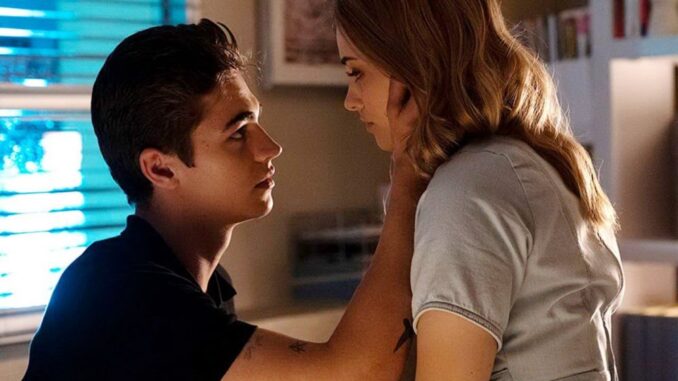
After Everything (2023): The Final Chapter of Hardin and Tessa’s Love Story
The After saga, born from Wattpad fanfiction and blossoming into a global cinematic phenomenon, has captivated millions with its raw, often tumultuous, portrayal of young love. For years, fans have been entangled in the push-and-pull dynamic of Hardin Scott and Tessa Young, a relationship characterized by fiery passion, devastating heartbreak, and an endless cycle of making up and breaking up. With After Everything (2023), the curtain finally draws on this epic, exhausting, yet undeniably magnetic romance, promising a definitive "final chapter" that aims to deliver not just resolution, but also a measure of hard-won peace.
Unlike its predecessors, After Everything shifts its focus almost entirely to Hardin Scott's perspective. After the events of After Ever Happy, Tessa has moved on, seeking a life free from the emotional rollercoaster Hardin consistently put her through. Left alone and grappling with writer's block for his much-anticipated sequel, Hardin is a man adrift, haunted by his past mistakes and the pain he inflicted on the woman he loves. The film opens not with another dramatic confrontation between the lovers, but with Hardin's solitary struggle, a poignant departure that immediately signals a change in narrative direction. This is no longer just about their shared chaos; it's about Hardin’s individual journey towards self-forgiveness and emotional maturity, a necessary precursor if any form of enduring love is to be salvaged.
The primary arc of After Everything sees Hardin embark on an impromptu pilgrimage to Lisbon, a desperate attempt to find inspiration and, more importantly, to confront the ghosts of his past. His quest leads him to Natalie, a woman he wronged years ago, a confrontation that forces him to acknowledge the true depth of his hurtful actions beyond just his relationship with Tessa. This detour, though seemingly separate from Tessa, is crucial. It illustrates Hardin’s willingness to face the consequences of his toxicity, to seek genuine redemption, and to understand that his issues run deeper than just his commitment fears. It's a cathartic, albeit uncomfortable, process that highlights the film's central theme: that true love cannot flourish until individual wounds are healed. Hardin’s inability to write his story parallels his inability to move forward with his life; only by confronting the truth can he find the words and the way back to himself.
Tessa, in turn, remains a powerful, albeit often unseen, presence. Her absence in the early parts of the film underscores the idea that Hardin’s growth must be for himself, not solely for her. When she does reappear, it's not as a damsel in distress or a partner in perpetual drama, but as a woman who has found her own footing. Their eventual reunion is less an explosion of passion and more a quiet understanding, a recognition of how far they’ve both come. The tension that once defined them has been replaced by a weary respect, a testament to the idea that love, to last, must evolve beyond its initial, often destructive, intensity. The film culminates in a wedding, a definitive symbol of their commitment, not just to each other, but to a healthier, more stable future.
However, labeling After Everything as the definitive "final chapter" invites contemplation. For loyal fans, it offers the longed-for happily ever after, a comforting balm after years of emotional turbulence. It provides closure, a sense that the cycle has finally been broken, and that Hardin and Tessa have, against all odds, found their way to a peaceful resolution. Yet, for critics of the series who have long pointed to the inherent toxicity of their dynamic, this conclusion might feel somewhat unearned or overly simplistic. Has Hardin truly shed all his demons? Is Tessa truly free from her enabling tendencies? The film attempts to address these questions through Hardin's internal monologues and his journey of atonement, suggesting that growth is an ongoing process, not a destination.
In essence, After Everything isn't just a sequel; it's an epilogue, a reflective coda that seeks to mend the frayed edges of a tempestuous narrative. It acknowledges the criticisms and aims to provide an ending that satisfies the romantic ideal while subtly hinting at the arduous work required to maintain it. It is a chapter dedicated to the arduous journey of individual healing, underscoring that the "after" in a love story isn't just about the romantic pairing, but about the profound transformation of the individuals within it. For Hardin and Tessa, their final chapter is less about a dramatic climax and more about a quiet, hard-earned peace, a testament to the enduring, albeit complicated, power of their love story.
